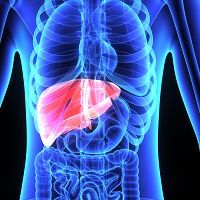Hopeful News on Rare, Incurable Liver Disease: Primary Sclerosing Cholangitis
The best treatment so far for primary sclerosing cholangitis, a rare and devastating inflammatory disease that typically strikes people in late adolescence or early adulthood, is liver transplant. But a phase 2 trial of norursodeoxycholic acid showed efficacy.

The only curative treatment so far for primary sclerosing cholangitis (PSC), a rare and devastating inflammatory disease of the liver that typically strikes people in late adolescence or early adulthood, is liver transplant.
Untreated it often leads to liver cancer
But in a study presented today at the International Liver Congress in Barcelona, Michael Trauner of Medical University Vienna, Vienna, Austria reported on success with norursodeoxycholic acid.
Reporting on a multi-center European Phase 2 trial of the drug, Trauner, a professor of gastroenterology and hepatology, said patients who received the highest dose of the drug showed a 26% decline in serum alkaline phosphatase, a clear signal that their illness had lessened.
In an interview after the presentation, Trauner said that while treatment may not be a complete cure, he estimated that longer term administration of the drug would further improve the debilitating progress of this rare disease, one that is also closely associated with irritable bowel disease.
“About two-thirds of these patients have irritable bowel disease,” he said, suggesting that the cause of PSC may be the spread of inflammation to the liver.
“It’s an hypothesis but we really do not know what causes it,” Trauner said. The condition results in damage to bile ducts that causes corrosive bile to build up in the liver, cirrhosis, liver failure and liver cancer.
In the trial 161 patients from 45 centers in 12 countries were randomized to receive the drug or placebo.
They were staged and given escalating doses up to 1,500 mg daily.
“It was well tolerated and there were only mild drug reactions,” Trauner said.
In a news conference this morning Trauner’s work drew praise from Heiner Wedemeyer, a researcher at Hannover Medical School in Germany.
“Professor Trauner is being too modest,” Wedemeyer said, and should be very excited about his findings.
“This is the most awful liver disease we have and for the first time we see something that may work, “ Wedemeyer said, “These are 20-year-olds we are talking about, “ young patients likely coping with irritable bowel disease and knowing that in addition to that they may need a liver transplant or face getting cancer.
A phase 3 study will be next, Trauner said.